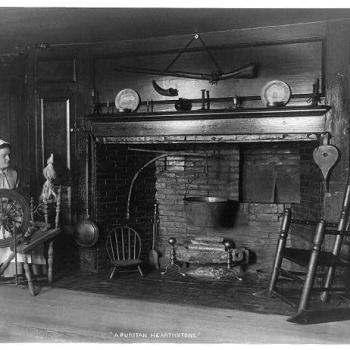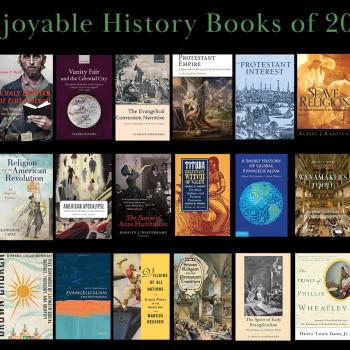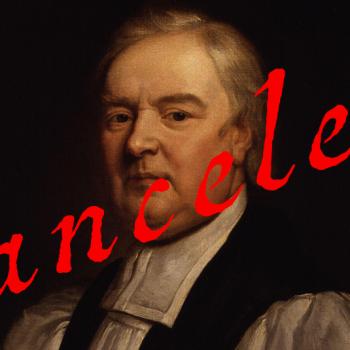Today is the official publication date for my book George Whitefield: America’s Spiritual Founding Father. Thanks to all of you who have already bought the book, as well as those who have so kindly posted and tweeted about it!
Why do we need this George Whitefield biography? Aside from the fact that he needs to be better known as the key evangelist of the First Great Awakening, and that this December 16 marks his 300th birthday, I believe that my biography has an opportunity to bridge the gap between academic and evangelical approaches to Whitefield. This is appropriate, since I am both an evangelical Christian and a university-based historian!
Fans of Whitefield know that the chasm between the academic and evangelical approaches to Whitefield is best exemplified by the differences between Arnold Dallimore’s 2-volume Whitefield biography, and Harry Stout’s The Divine Dramatist. Dallimore’s is an explicitly Christian biography, and while Dallimore certainly criticized Whitefield at certain points, it was written primarily for a Christian audience and focused on the ways that God used Whitefield in the Great Awakening. Yale historian Stout (who, for full disclosure, is a friend and a mentor to me) placed Whitefield in the context of England’s theater culture, and focused much more on Whitefield’s worldly context and motivations. To many readers, Stout’s approach seemed overly cynical; indeed, John Piper has said that Stout’s biography is “the most sustained piece of historical cynicism I have ever read.”
I find myself in the strange position of being an admirer of both John Piper and Harry Stout, and a fan of Dallimore’s biography, to boot! In fact, I think that Dallimore’s biography has been one of the best choices for general readers who want to know the amazing story of Whitefield’s ministry, and many evangelical readers will understandably find Dallimore more congenial than Stout. But Stout, and other academic writers like Frank Lambert and Jerome Mahaffey, add a dynamic missing in approaches like Dallimore’s: a broader understanding of the culture and economy that formed Whitefield and made his ministry possible, in an earthly sense.
So in one way, I am simply trying to bridge what I see as an unnecessary gap between the Christian and the academic approaches to Whitefield. But there’s one thing more: we need a scholarly yet readable Whitefield biography that places him into the context in which he really belongs, the broader evangelical movement that emerged during the Great Awakening. Because of my earlier work on the Great Awakening, I hoped that I would be able to present Whitefield the way he saw himself: as the key leader, and yet just one of many leaders (Jonathan Edwards, John and Charles Wesley, and many others), of eighteenth-century evangelicalism.
Although I deeply respect and appreciate him, my Whitefield is not a perfect man. As Whitefield readily admitted, he struggled with the temptations of fame, and I also show his besetting difficulties in relating to other evangelical leaders such as the Wesleys. Most disappointing (as Dallimore noted too) was Whitefield’s advocacy for slavery, and his personal owning of slaves.
So this commemorative biography, I hope, is a readable account of Whitefield as an imperfect vessel used powerfully through his incredibly rigorous preaching and travel, his entrepreneurial ministry, and his profound commitment to evangelical orthodoxy. His is a story that all evangelical Christians should know.
See also my interview with The Gospel Coalition, “America’s Spiritual Founding Father at 300.”
Friends, you can sign up here for my Thomas S. Kidd author newsletter. Each newsletter will update you on what’s happening in the world of American, a religious and political history, and current events. It will contain unique material available only to subscribers, and each will help you keep up with my blog posts, books, and other writings from around the web. [Your e-mail information will never be shared.] Thanks!












